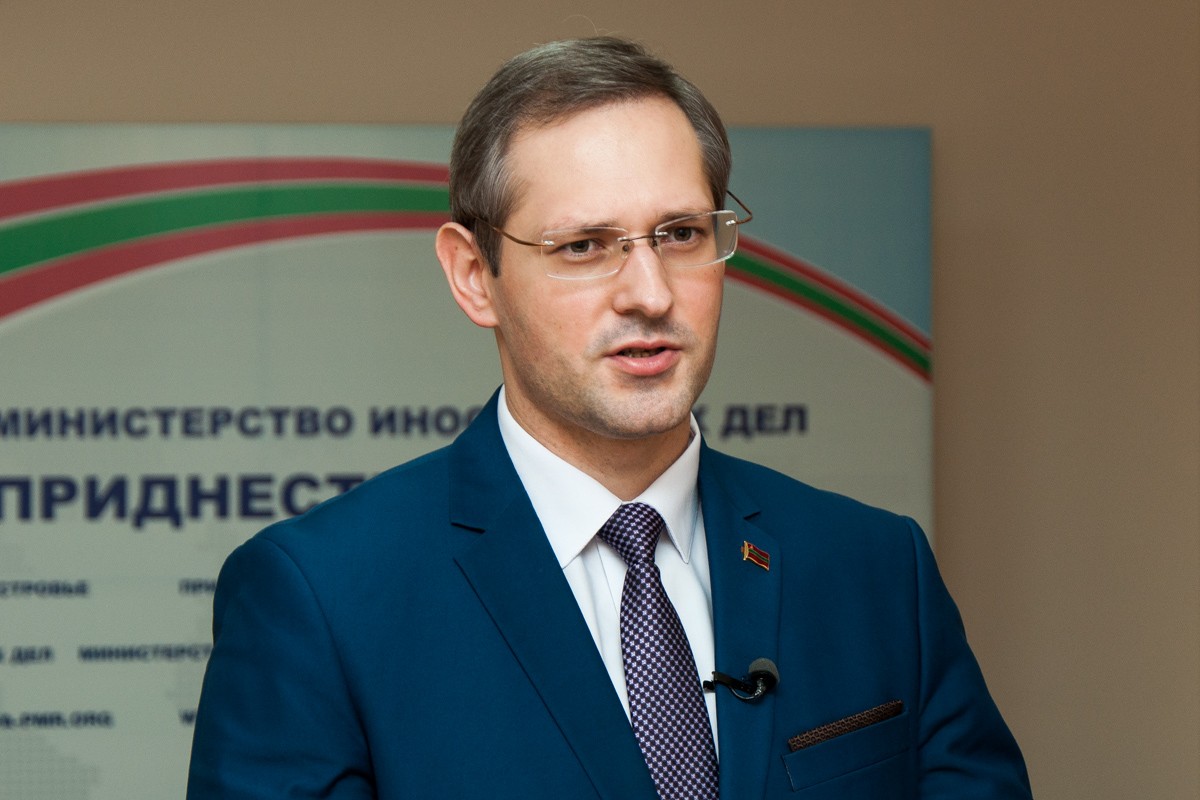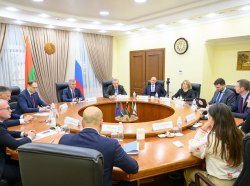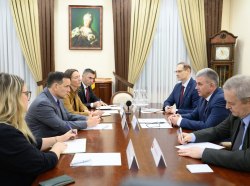Tiraspol, 26 December. /Novosti Pridnestrovya/. Pridnestrovie's foreign minister Vitaly ignatyev commented in an interview with Novosti Pridnestrovya on the results of the Russian-Pridnestrovian cooperation in 2017. According to the diplomat, the dynamics of contacts between Pridnestrovie and Russia remain high and substantive in all areas of cooperation, including in the socio-economic and humanitarian spheres.
The minister paid special attention that the current year saw a fundamental coincidence of positions of Pridnestrovie and Russia on the track of the negotiating process.
"We and our Russian colleagues have expressed the same position on the need to resume the systemic work at the level of the 'Permanent Conference...' in the '5+2' format without any preconditions. This position, which is also espoused at the level of the senior leadership of Russia's MFA, has been unchanged and remains relevant. The righteousness of our position has eventually been confirmed, but it took our OSCE partners a year to hear our arguments. In this sense, we are very grateful to our Russian partners for support, and I'm sure that such coordination of joint efforts will continue in the future," said Ignatyev.
According to the minister, it is also noteworthy that following the results of the Vienna meeting, all the negotiation participants signed an official document giving a new impetus to the final implementation of the Berlin Protocol. As the diplomat noted, it is significant in this regard that Russia's foreign minister Sergey Lavrov has praised the progress made at the negotiating table.
Ignatyev recalled that during the year he had repeatedly met with Russian MFA officials, in particular with ambassador at large Sergey Gubarev, both in Moscow and Tiraspol. "I highly appreciate the dynamics of our bilateral contacts and, in general, the bilateral cooperation that has established between the foreign ministries of Russia and Pridnestrovie," underscored Ignatyev, noting that contacts with the Russian colleagues were often conducted in online mode.
The minister particularly noted the meeting he had held in Brussels with Russia's permanent representatives to the EU and the NATO, Vladimir Chizhov and Alexander Grushko. According to the diplomat, he managed to discuss a wide range of important issues with the Russian partners, including possible areas of joint work.
According to Vitaly Ignatyev, 2017 has seen a number of acute regional challenges and threats to the interests of Pridnestrovie and Russia. In particular, he mentioned a number of unfriendly measures taken by Moldova against Russian diplomats and a peacekeeping operation on the Dniester.
"Unfortunately, Kishinev has organised at the highest level an anti-peacekeeping operation which consisted in destabilising the work of the peacekeeping format, the adoption of blatantly anti-Russian decisions by the Moldovan parliament and constitutional court. In these circumstances, we were able to prevent a dangerous deterioration in the Security Zone; important joint work was carried out by the Joint Control Commission. We also made every effort to mark the 25th anniversary of the peacekeeping operation at a high level. I think we have succeeded," underscored the minister.
Ignatyev expressed special gratitude to Russia for its consistent assistance to Pridnestrovie's position on the inadmissibility of Moldo-Ukrainian control at the Pridnestrovian border. According to Ignatyev, the need to avoid unilateral steps worsening the lives of ordinary people was repeatedly emphasised by Russian officials and was also reflected in a special statement by Russia's State Duma.
"Of course, Russia remains a responsible strategic partner of Pridnestrovie, and we hope very much that we'll be able to give a new impetus to our cooperation at all levels in the following year as well. The challenges and threats facing Pridnestrovian and Russian diplomats are very serious. Without coordinated efforts, active cooperation and use of various instruments of bilateral contacts, of course, it is impossible to succeed. Therefore, we expect that further joint work will continue in the same rhythmic and intensive manner," concluded Ignatyev.








